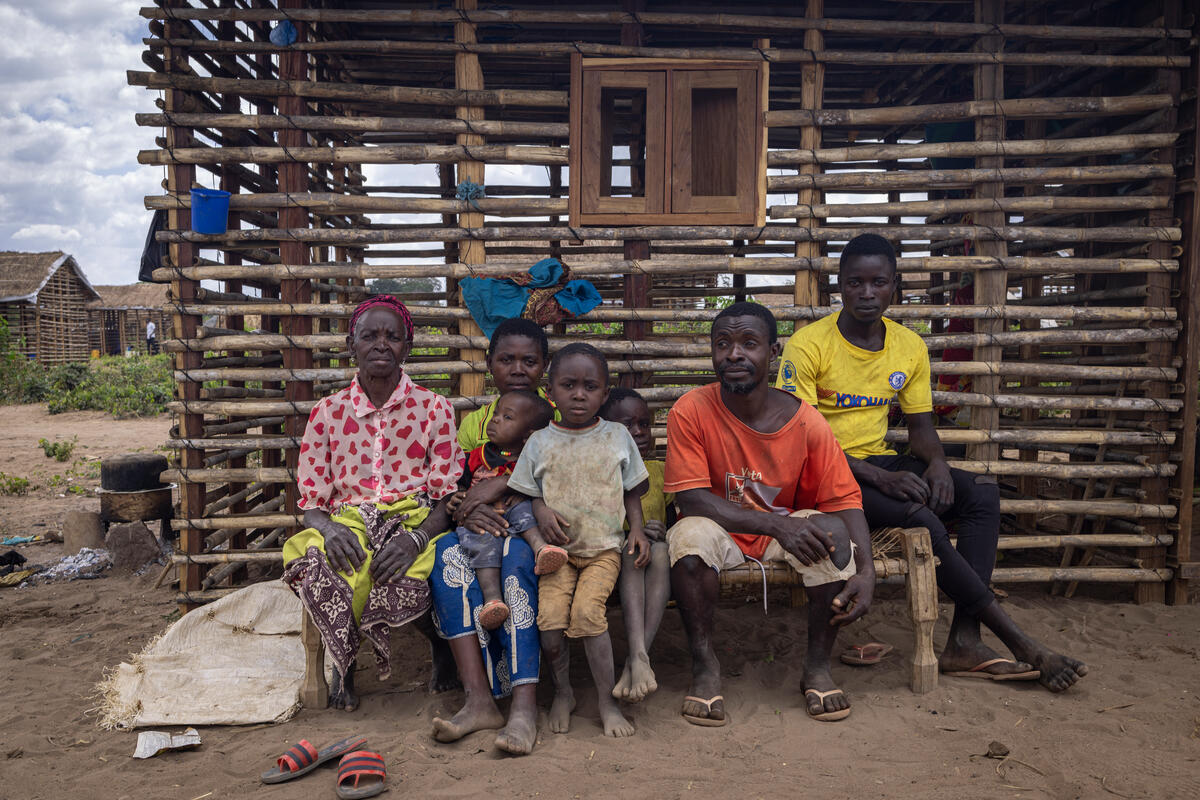
ADF STAFF
Eduarte Cristiano Tumbati and his family fled their home in terror, taking only a few kitchen utensils when they left the village of Ntoli in Mozambique’s Cabo Delgado province.
Tumbati, 38, his wife and their three children journeyed five hours by foot to the safety of a displaced persons camp after extremist militants attacked Ntoli and murdered Tumbati’s brother.
“My brother and his wife were in their cassava field when the insurgents appeared two years ago,” he told the United Nations refugee agency (UNHCR). “They cooked food and after they had eaten, they told his wife to watch what they were going to do to him. They beheaded him and told his wife to disappear. She ran home and told us what had happened.”
Tumbati said “we have not gone back to our village and we have not buried my brother.”
Renewed violence unleashed by the Islamic State-Mozambique group (ISM) between February 8 and March 3 forced nearly 100,000 people to flee their homes, according to the U.N.
The new wave of attacks threatens to undermine months of counterterrorism gains made by Mozambique’s armed forces and their regional partners, the Southern African Development Community Mission in Mozambique (SAMIM).
ISM fighters have terrorized Cabo Delgado since 2017, killing nearly 5,000 and displacing almost 1 million people.
Through its propaganda channels, ISM claimed responsibility for 27 attacks in February that killed 70 and destroyed 500 churches, houses and public buildings in the Chiure district.
Mozambican President Filipe Nyusi promised to respond with “forceful measures.”
“The situation had calmed down a lot and the populations were returning,” he told reporters on March 3. “All the villages that were occupied by terrorists were recovered. But now, in recent weeks, there is a tendency for small groups to start carrying out attacks in some villages and descend to the southern districts of Cabo Delgado.”
Zimbabwean President Emmerson Mnangagwa, who met with Nyusi on the sidelines of the African Union summit in February, indicated that the Southern African Development Community (SADC) is rethinking its plans for a complete withdrawal.
“The situation has not really calmed down,” he said, according to Zimbabwean newspaper The Herald. “But that mandate is coming to an end, so we are discussing how we can deal with the situation.”
The SADC will consider keeping a presence in the coastal town of Pemba as a base for offensive operations while withdrawing from other districts in Cabo Delgado, according to Portugal-based website Africa Monitor.
Created in July 2021, SAMIM is composed of troops from Angola, Botswana, the Democratic Republic of the Congo, Lesotho, Malawi, South Africa, Tanzania and Zambia. New SAMIM commander South African Maj. Gen. Patrick Dube is overseeing a phased drawdown that was scheduled to conclude in July.
After visiting in February with Rwandan troops stationed in Cabo Delgado, Nyusi traveled to Algeria in early March to gather further counterterrorism support.
Algerian President Abdelmadjid Tebboune pledged to send basic personal equipment for members of Cabo Delgado’s local militias who are fighting ISM alongside security forces.
“This is going to happen,” Nyusi told reporters.
UNHCR Commissioner Filippo Grandi visited and also pledged to support Cabo Delgado.
“The most important thing is still how to help the government find solutions for the displaced people, either by helping them to return to their homes or transferring them to other places or keeping them where they are,” he told reporters after meeting with Nyusi in Maputo, Mozambique, on March 4.
The post Cabo Delgado Insurgency Rebounds, Foiling Drawdown Plans appeared first on Africa Defense Forum.









